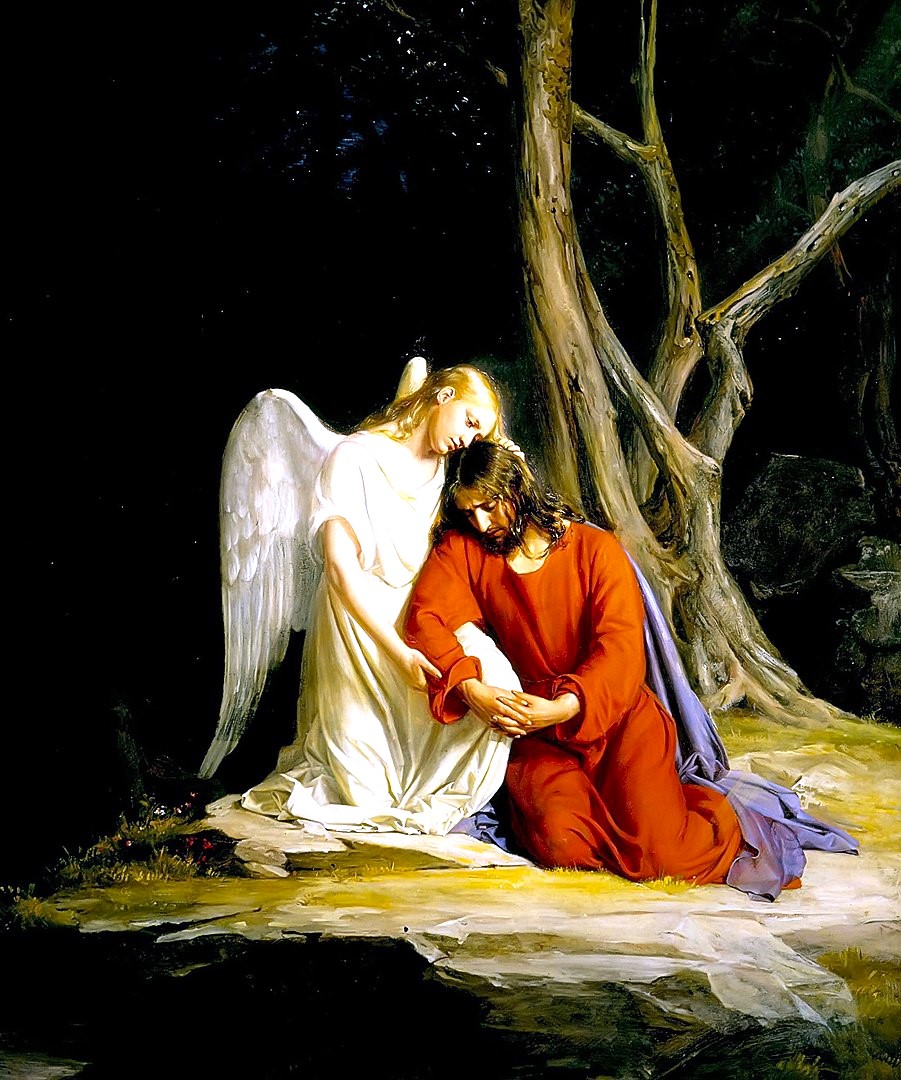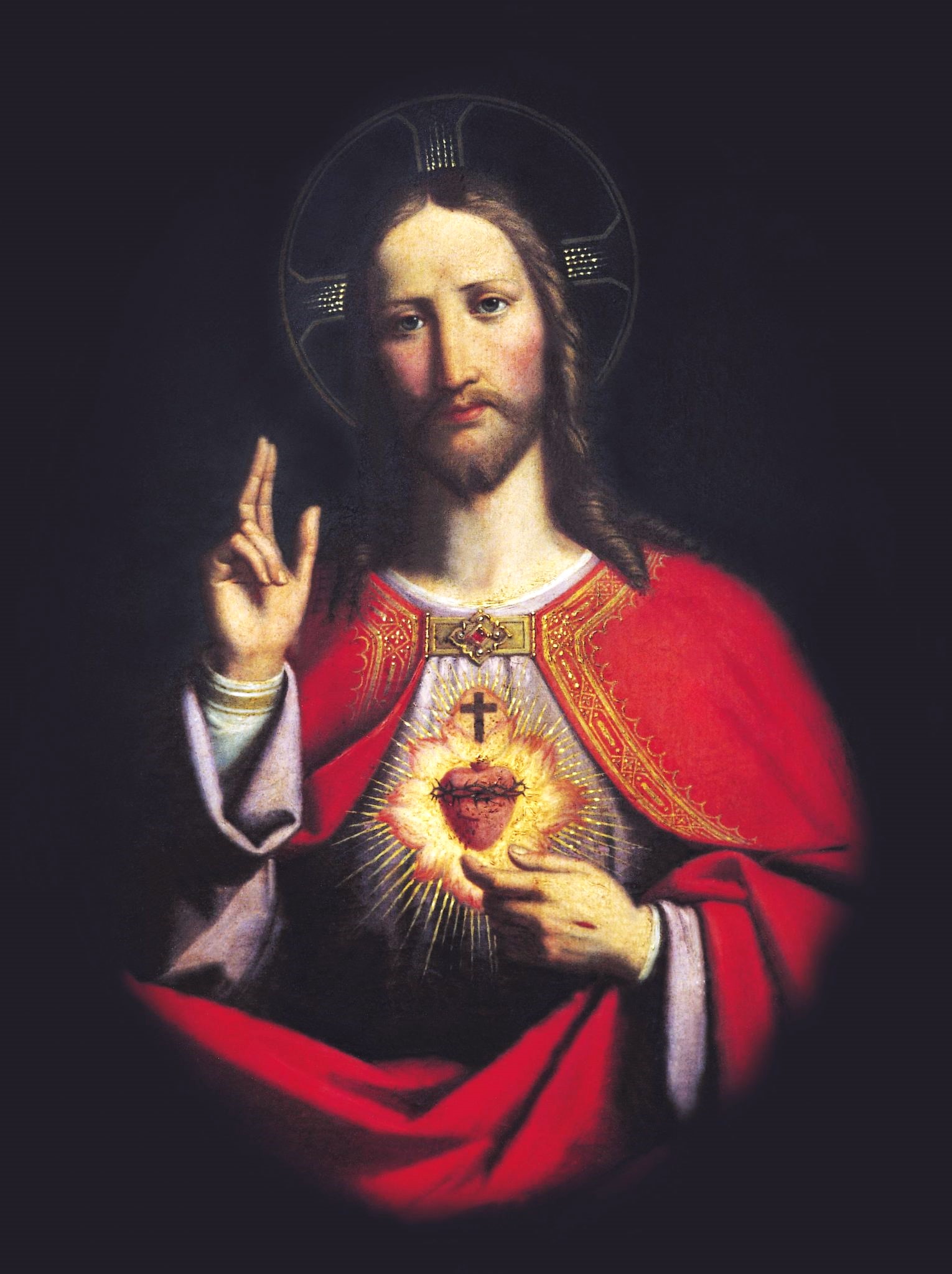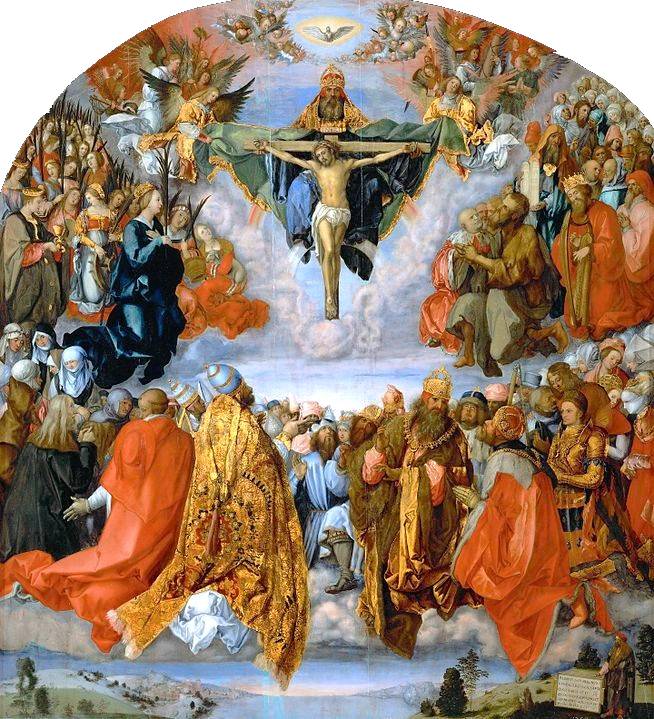Theotokos of the Passion Icon
During the night, the Mother of God visited me, holding the Infant Jesus in Her arms. My soul was filled with joy and I said, “Mary, my Mother, do You know how terribly I suffer?” And the Mother of God answered me, I know how much you suffer but do not be afraid. I share with you your suffering, and I shall always do so. She smiled warmly and disappeared.
St. Faustina, Notebook I, n. 25.

An Angel Comforting Jesus Before His Arrest in the Garden of Gethsemane, Carl Bloch, 1873
Now if because of our sins also which were as yet in the future, but were foreseen, the soul of Christ became sorrowful unto death, it cannot be doubted that then, too, already He derived somewhat of solace from our reparation, which was likewise foreseen, when there appeared to him an angel from heaven” (Lk 22:43), in order that His Heart, oppressed with weariness and anguish, might find consolation. And so even now, in a wondrous yet true manner, we can and ought to console that Most Sacred Heart which is continually wounded by the sins of thankless men, since – as we also read in the sacred liturgy – Christ Himself, by the mouth of the Psalmist complains that He is forsaken by His friends: “My Heart hath expected reproach and misery, and I looked for one that would grieve together with me, but there was none: and for one that would comfort me, and I found none” (Psa 68:21)
Pope Pius XI, Miserentissimus Redemptor, 13.

Sacred Heart of Jesus
Jesus Christ, my kind Master, appeared to me. He was a blaze of glory — his five wounds shining like five suns, flames issuing from all parts of his human form, especially from his divine breast which was like a furnace, and which he opened to disclose his utterly affectionate and loveable Heart, the living source of all those flames. It was at this moment that he revealed to me the indescribable wonders of his pure love for mankind: the extravagance to which he’d been laid for those who had nothing for him but ingratitude and indifference. “this hurts me more, ” he told me, “than everything I suffered in my passion. Even a little love from them in return — and I should regard all that I have done for them as next to nothing, and look for a way of doing still more. But no; all my eager efforts for their welfare meet with nothing but coldness and dislike. Do me the kindness, then – you, at least – of making up for all their ingratitude, as far as you can.”
St. Margaret Mary Alocoque, Mémoire, p. 327.
My Saviour grieves even now about my sins. My Savior cannot rejoice as long as I remain in perversion. Why cannot he do this? Because he himself is “an intercessor for our sins with the Father.” .. How can he, who is an intercessor for my sins, drink the “wine” of joy, when I grieve him with my sins? How can he who “approaches the altar” in order to atone for me a sinner, be joyful when the sadness of sin rises up to him ceaselessly? “With you,” he says, “I will drink in the Kingdom of my Father.” As long as we do not act in such a way that we can mount up to the Kingdom, he cannot drink alone that wine which he promised to drink with us. .. Thus it is that he waits until we should be converted, in order that we may follow in his footsteps and he rejoices “with us” and “drink wine with us in the Kingdom of his Father.” … We are the ones who delay his joy by our negligence towards our lives.

Landauer Altar, Albrecht Dürer, 1511
… [But] the apostles too have not yet received their joy: they likewise are waiting for me to participate in their joy. So it is that the saints who depart from here do not immediately receive the full reward of their merits, but wait for us, even if we delay, even if we remain sluggish, They cannot know perfect joy as long as they grieve over our transgressions and weep for our sins.
… You will have joy when you depart from this life if you are a saint. But your joy will be complete only when no member of your body is lacking to you. For you too will wait, just as you are awaiting. But if you, who are a member, do not have perfect joy as long as a member is missing, how much more must our Lord and Savior, who is the head and origin of this body, consider it an incomplete joy if he is still lacking certain of his members?
… Thus he does not want to receive his perfect glory without you: that means, not without his people which is “his body” and “his members”
Origen, In Leviticum homiliae VII, 1-2.
